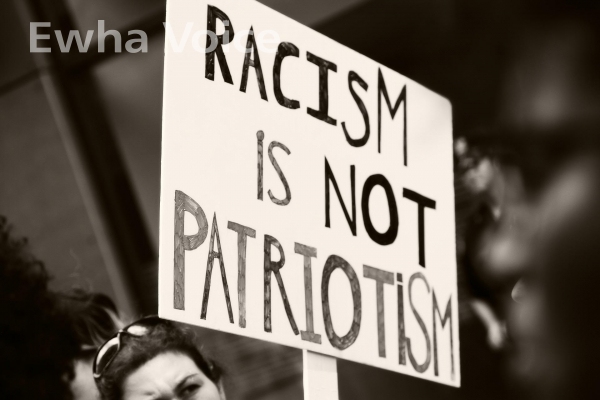
Last month, an Asian woman was suddenly attacked with a box cutter by an African American man near Times Square in New York. Although it has yet to be determined, police have weighed the possibility that the case might be a hate crime, considering the recent wave of hate crimes targeting Asians in the United States.
Since the outbreak of the pandemic, hate crimes against Asians have soared in the United States. According to the Asian hate reporting site STOP AAPI Hate, 11,467 Asian hate crime cases were reported from 2020 to March this year, of which 16 percent were against Koreans, the second highest after crimes targeting Chinese.
In April, a Japanese man burned down the Korea International School located in Japan. The motive for the crime turned out to be an aversion towards Koreans.
Yet the increase in hate crimes is no longer simply a concern in other countries.
A study published by the Korean Association of Public Safety and Criminal Justice found that cases have also rapidly increased in Korea since the pandemic. According to the paper, crimes committed against non-Koreans accounted for 42 percent, among which 56 percent occurred during the pandemic.
Regarding the ongoing situation in Korea, Park Sun-hee, the general manager of the Gyeonggi Institute of Research and Policy Development for Migrants’ Human Rights told Ewha Voice that it is still difficult to accurately count such official domestic cases since the criteria to define hate crimes are ambiguous. She pointed to the lack of laws necessary to deal with this issue as the cause of the problem.
“We acknowledge that exercising laws cannot be a complete solution,” Park said. “However, some do not even realize that their actions can be considered a crime because the law has not been clearly presented.”
Park also revealed that many other problems of foreign residents’ rights violations still occur. For instance, the problem of overdue wages to foreign workers has always been an issue.
According to the cases reported to the center, many foreign workers have been suffering from overdue and unpaid wages. In particular, unregistered migrant workers are now in a human rights blind spot.
“I have not suffered overdue wages yet, but many friends around me have not been paid for working overtime, with some even being fired,” said a man who flew to Korea from the Philippines a few years ago.
He has been working at Kookil Textile plant to make money to send home to his family. He wished to remain anonymous as he fears repercussions from his company or immigration officials for speaking about it.
When asked about what foreign workers could do, he shook his head with a smile.
“It's not easy to deal with because of our status,” he said. “What can we do if our employer reports us to the government? We can say nothing even when we suffer from hate crimes unless we want to leave.”
He had secured a house to stay near his workplace, but one day he was suddenly told to leave.
Since he did not have any contingency plans or information about contract terms, he had no choice but to stay at his friend's house for several months.
For all of this, he ventured that the discrimination he experienced seems to be related to his nationality.
“I have some Western friends, but they often find it difficult to sympathize with me when we go through this kind of issue,” he said. “I think to some extent, the degree of discrimination we suffer differs depending on whether we are Asians or Westerners.”
Regarding such issues, Park criticized Koreans’ sense of elitism. She said it is not uncommon to see some people in Korea looking down on foreign residents from certain nationalities that they do not think can live up to their standards.
Park emphasized that the foremost cause of all these problems is discrimination against foreigners. She thinks that before laws are enacted, fundamental improvements are also needed.
“It is easier to have biased perspectives toward non-Koreans since there are few opportunities to meet them in our daily lives,” she said. “Beyond compulsory legal regulations, manners toward people from other countries must be established first.”

